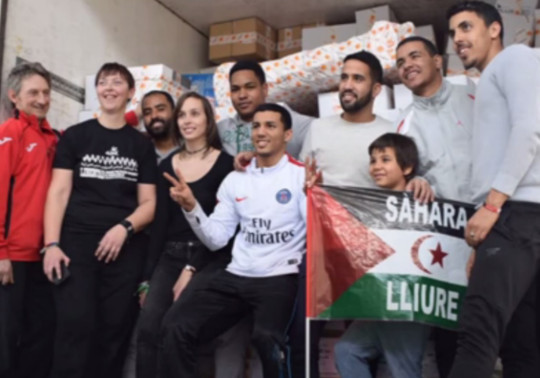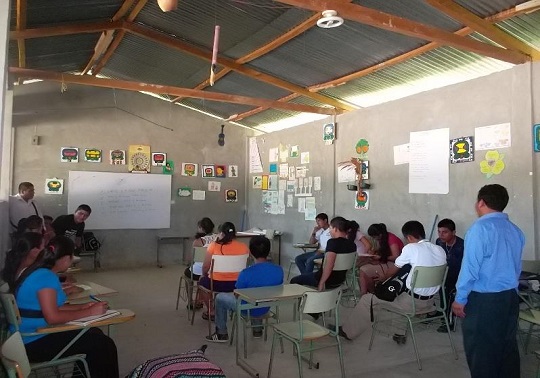A cooperation project of the Universitat improves sanitary conditions in the Saharawi camps of Tindouf
- Cooperation Department
- March 12nd, 2019

The high infant mortality rate is one of the major welfare and health problems affecting mostly developing countries. In order to alleviate this reality, the Universitat de València has led the equipment of the maternal area of the Regional Hospital of Laayoune, in Western Sahara, through a project of the program “0’7 Committee A Ship of Solidarity”, managed by the General Foundation.
Coordinated by Núria Romero Cuenca, head of unit at the Faculty of Biological Sciences, and responsible for the project, the improvement of the mother-child facilities, which covers four settlements or wilayas of Tindouf (Laayoune, Smara, Auserd and Dajila), has meant a significant improvement not only in the health of the pregnant women who come to the hospital and in the guarantee of their minimum hygiene conditions, but also in the reduction of neonatal mortality.
The intervention of the Universitat in the area began in 2015 through the dissemination of the association “Ajuda als Pobles” (Help the towns) Quart de Poblet of the emergency situation experienced by Saharawi refugees in these camps in Tindouf.
Since then, the Universitat has been actively involved in the work carried out by this entity in favour of the most vulnerable and unprotected population: pregnant women. Efforts have focused in the case of this project on covering the main need of this hospital in terms of facilities: equipping it with the materials necessary for its operation, covering the basic conditions of the patients.
Living conditions in the desert are extremely harsh and increase when the characteristics of a refugee camp located in the most inhospitable area of the Algerian desert are added. "This hospital helps refugees living in tents and sun-dried brick constructions, which means living under very harsh conditions and suffering in houses and basic facilities like this hospital adverse weather conditions such as rain," explains Romero.
The situation is extremely serious in the case of pregnant women because "traditionally give birth at home, in the tents, with the risk that this entails. That's why we try to make them aware of the quality of health centres such as the Hospital of Laayoune and the need for them to come to them, especially at the time of delivery," she adds.
Once the project has finished, the results and future prospects cannot be more encouraging and positive. Hygiene has increased, and improved conditions have contributed to ensuring the health of women in labour in Laayoune , where 95 % of births have been satisfactory. In addition, the attendance at the Hospital in a convincing way makes women have shown in themselves a confidence and tranquility that has generated better developments in pregnancies.
The work coordinated by Nuria Romero has been recognized with the Manuel Castillo Award in its ninth edition, in the category "Luis Vives Initiatives of Cooperation for Development of the University of Valencia", which will be delivered tomorrow, Wednesday, March 13, at the La Nau Cultural Centre at noon.
The head of unit of the Faculty of Biological Sciences has shown herself satisfied with this recognition, extending it to all the human team involved in the project: "The prize is the visible recognition, but there are many people behind it; it is because of this recognition that I am looking forward to it", she said.
The Programme 0'7 of the Universitat de València
The Programme ‘0,7 Committee A Ship of Solidarity’, called by the Office of the Vice-Principal for Internationalisation and Cooperation of the Universitat de València, is managed by the 0.7 Committee, created in 1995 with the aim of establishing the general action lines of cooperation to development of the Universitat de València; distributing the 0.7 budget -obtained from the 0.7% of the Universitat budget, as well as with a volunteer basis of the 0.7% of the salaries of its staff and university fees of students. The Commission allocates resources between the different cooperation programmes; it controls and supervises this budget, and prepares and resolves calls for its own cooperation projects, with the technical and management support of the Cooperation Area of the General Foundation of the Universitat de València.
File in: Fundació General UV














